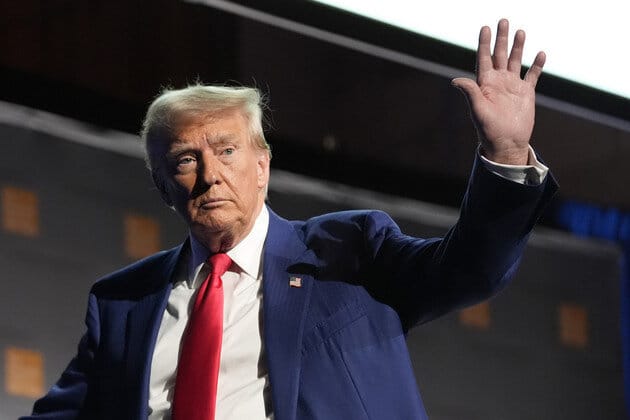Fear in the West: Trump and the possibility of NATO dissolution.
Donald Trump’s decisive victory over Kamala Harris was not the desired and expected result for America’s European allies, because the two important institutions of the Western alliance, the military organization “NATO” and the “European Union”, both have bitter experiences with cooperation with Trump. They remember well that during his first term as president, Trump repeatedly challenged the necessity of continuing NATO’s activities and questioned the share of European military participation. Therefore, it is natural for the headquarters in Brussels to be concerned about whether Trump’s America may still remain in NATO or not.
The fear and concern of NATO leaders about Trump’s future decisions have become important in a situation where, in addition to the US President, many political thinkers have also repeatedly stated that NATO belonged to the Cold War era and that its life and mission have ended and should be dissolved.
Trump’s Condition for Staying in NATO
A Politico analysis of one of Trump’s recent interviews confirms that he still has a pessimistic view of the NATO alliance, but at the same time he has made some conditions, saying: “The United States will not leave NATO, but only if European countries play fair and do not abuse American support.”
Both the phrases of playing a “fair” role and “not abusing American support” are the main keywords in Trump’s attitude towards the NATO alliance. With his broker-like approach, he seeks to firstly ensure that European countries allocate a greater share of their budgets to military spending and, secondly, that they be more subservient to the United States in final decisions. It is based on this logic that Trump has repeatedly claimed that if he had remained in power, he would not have allowed the war between Russia and Ukraine to take place.
The latest NATO spending report shows that despite Trump’s constant complaints about European countries being stingy with military spending, many of these countries, including Poland, Lithuania, Romania, and Hungary, as well as Spain, Greece, and Finland, have increased their defense spending percentages over the past three years. Of course, the two wealthier countries, Britain and Norway, as well as Italy, reduced their military spending during Joe Biden’s tenure, and now all three countries must expect to soon be exposed to Trump’s cannons and arrows. This is reminiscent of a part of the memoirs of former German Chancellor Angela Merkel, who, during a trip to Washington and meeting with Trump, was suddenly faced with the question: “So when are you going to pay us back?” After Merkel’s surprise, Trump said: “I mean defense spending. Germany is one of the countries in NATO that has not spent enough money on defense!”
About two-thirds of NATO’s 32 member states are said to spend 2 percent of their gross domestic product on defense, according to the customary agreement. But Germany, a wealthy NATO ally, often allocates an amount of 1.5 percent, and Trump was angry about this in his previous term.
Trump vs. Putin
Ed McMullen, Trump’s former ambassador to Switzerland, indicated in an interview with ABC News that Trump will act in his way when making decisions about NATO, but McMullen also claimed that Trump has extensive experience in containing Vladimir Putin’s power and will know how to control Putin in the new term. Meanwhile, Anthony Gardner, a former US ambassador to the European Union appointed by Obama, believes that in addition to Trump, many other American politicians have repeatedly criticized NATO’s performance but still preferred to keep the alliance alive. Gardner says: “Trump’s concerns about the level of NATO allies’ participation in defense spending are reasonable, and European countries should pay more. But some of Trump’s comments and positions practically disarm European allies against Russia. The guarantee of collective defense is still the main reason for NATO’s continued activity, and no one should joke about this issue.”
Gardner has mentioned several other important points, the expression of which reveals some important problems and challenges within NATO:
1. The issue of paying attention to national interests among European countries does not have a particular coherence, and there are scattered definitions and approaches to this issue.
2. The lack of understanding of the threat to national security among many countries makes it difficult for the NATO alliance to increase defense spending.
3. How is a significant portion of NATO allies’ defense budgets spent inefficiently, and the vast majority of the military budget is spent on matters unrelated to the battlefield and combat readiness, and even defines the payment of military pensioners and ordinary personnel salaries under the same budget?
What do international relations experts say?
This is not the first time that Trump’s attitude towards the life and death of NATO has become a challenging debate, as Trump has been strongly criticizing NATO for years and has openly said: “NATO must treat America fairly because if the United States were not in this group, there would be no NATO.”

